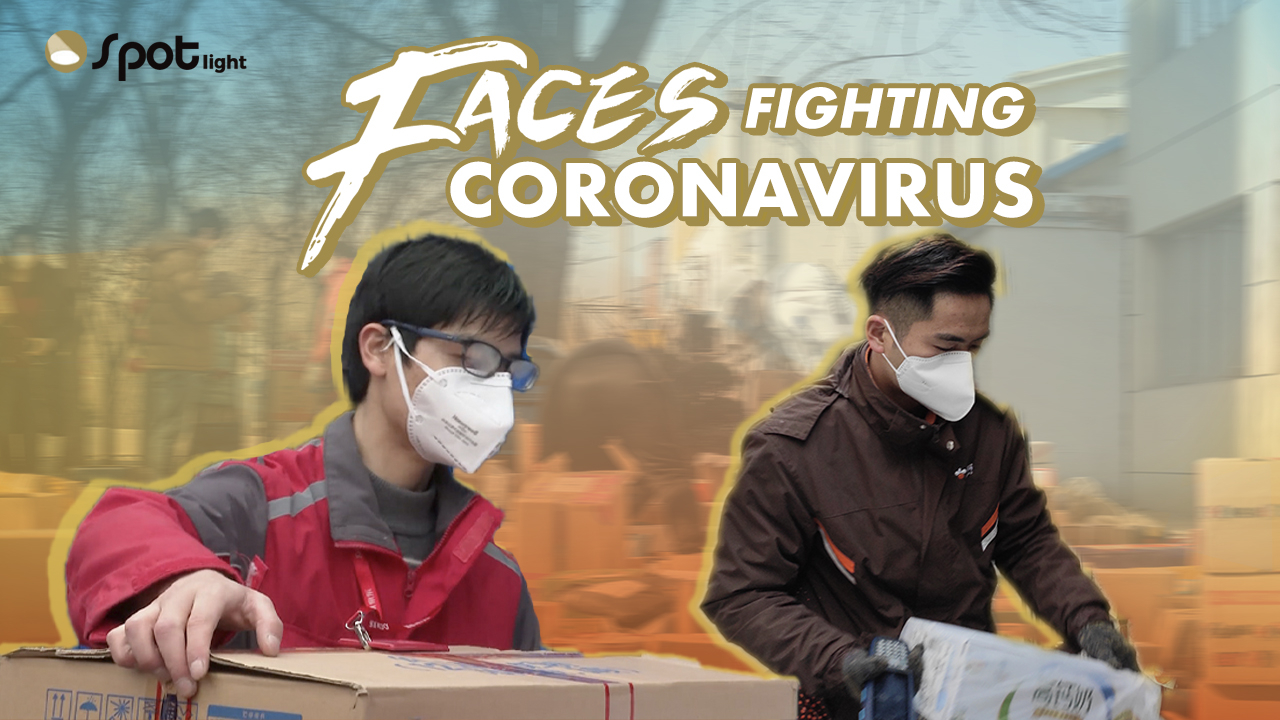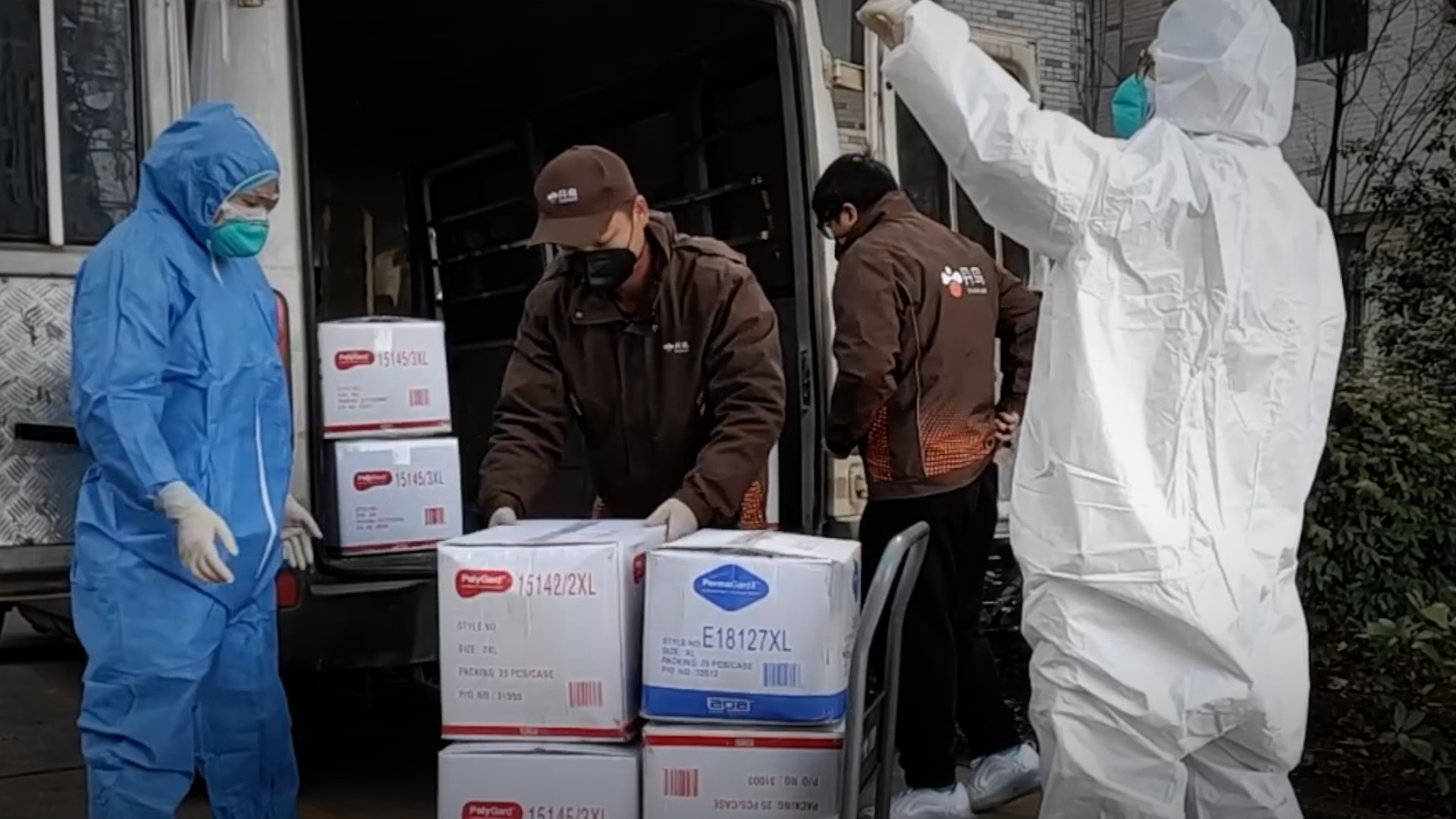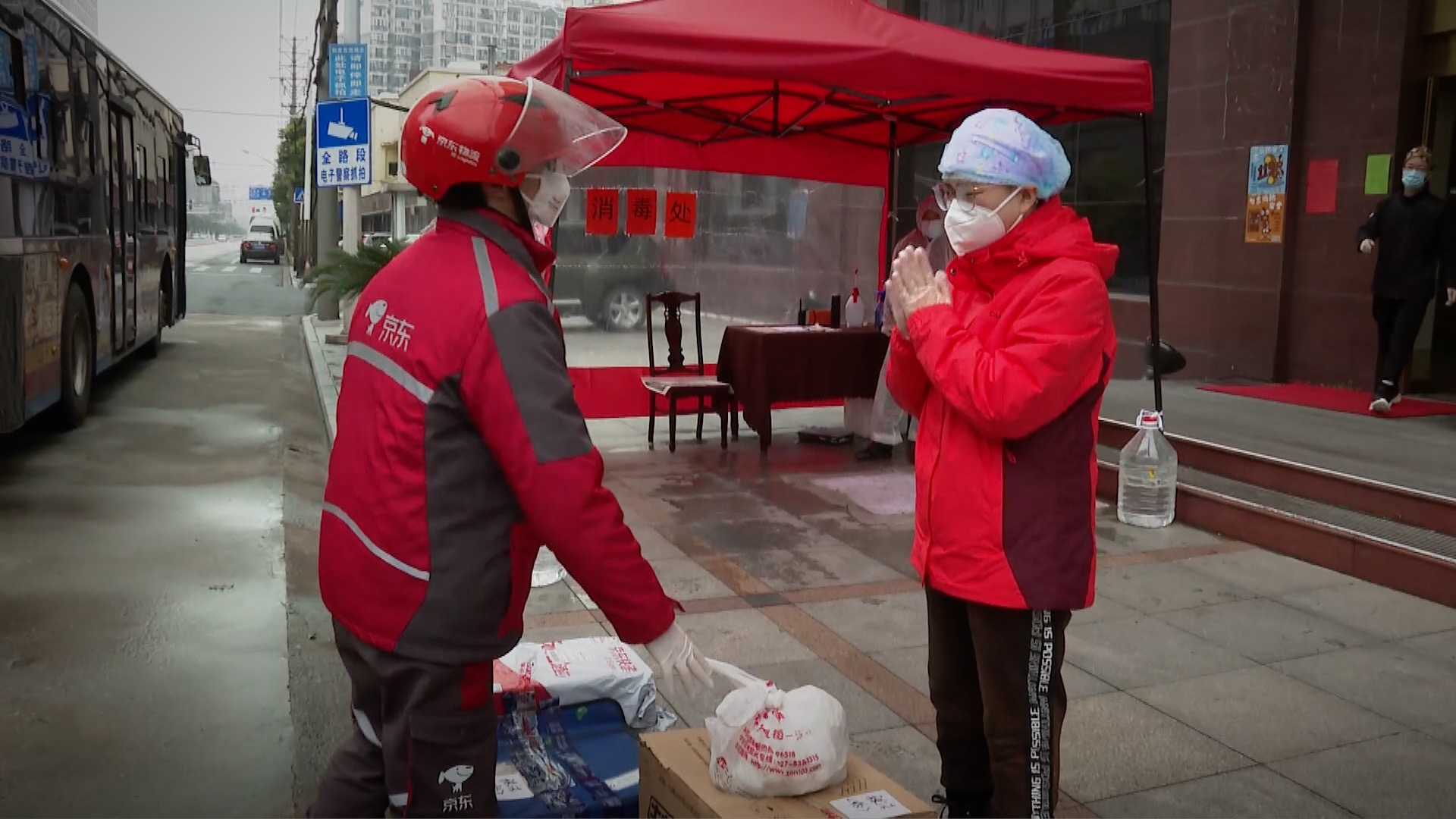03:36

Editor's note: This is the seventh episode of our series "Faces Fighting Coronavirus" chronicling people from different walks of life who are affected by the disease outbreak as well as those who are trying to keep their lives as normal as they can to get things going. Here you can find the first, second, third, fourth, fifth and sixth stories.
Our seventh episode documents the day of two deliverymen in Wuhan, where they play crucial roles in getting necessities to sealed-off residents and medical professionals who came from around the country to handle the city's overburdened healthcare system.
The deliverymen of Wuhan don't take their work just as a job. For them, getting packages to their owners is a mission. This becomes even more apparent when the city is in a state of paralysis, where grocery stores and restaurants are basically closed, making it difficult to get food and daily necessities.
"We are 'logistics warriors' in Wuhan," said Yuan Shuang, who has continued to deliver packages in the epicenter of the novel coronavirus outbreak.
Yuan, who works for Alibaba's logistics arm Danniao Logistics, is one of the many delivery staff who not only continue to get much needed packages that often contain medical supplies and other necessities to medical professionals and residents, but often do so at great risk as the contagious coronavirus can be transmitted by droplets released in the air or by direct contact, much like the common flu.

Medical supplies are delivered to doctors and nurses in Wuhan, central China's Hubei Province, February 2020. /CGTN
Medical supplies are delivered to doctors and nurses in Wuhan, central China's Hubei Province, February 2020. /CGTN
Many of his colleagues have left the city to return home for the Spring Festival in other towns or provinces. After the city was sealed off to contain the spread of the disease, they couldn't return, so those who remain are Wuhan natives.
"As only 50 to 60 percent of our employees remain, they have to take on extra loads," said Feng Wei, manager of Danniao's Central China Region headquartered in Wuhan.
As those stuck in their homes make more online orders than usual, especially food, daily necessities, sanitizers and cleansers, delivery workers are working 12-hour shifts driving overloaded vans across empty streets and lanes.
Yuan isn't complaining. Born and raised in Wuhan, he feels like he's doing his part to help out his hometown. His clients have responded in kind, giving him masks, hand sanitizers, and even festive red envelopes.
These delivery workers are also making a big difference for the city's doctors and nurses, who are exasperated from taking on extended shifts to care for the hordes of coronavirus patients, confirmed and suspected cases. Jia Shengzhi, who delivers packages for e-commerce giant JD, brought dumplings made by his parents to medical professionals who come from as far as Inner Mongolia. Jia even brought them steam cookers and tableware, apart from cases of masks, googles, gloves and various kinds of medical equipment.
For people with roots in Wuhan such as Jia and Yuan, they aren't simply serving another client but a fellow neighbor with their small-town intimacy.

Jia Shengzhi delivers dumplings made by his parents to doctors and nurses from Inner Mongolia, now working in Wuhan, central China's Hubei Province, February 2020. /CGTN
Jia Shengzhi delivers dumplings made by his parents to doctors and nurses from Inner Mongolia, now working in Wuhan, central China's Hubei Province, February 2020. /CGTN
Although deliverymen don't come into direct contact with people who have confirmed cases of infection, the risks are real. When many avoided the Huanan Seafood Wholesale Market, widely considered the origin site of the novel coronavirus, one of Yuan's colleagues took on the task of delivering milk formula to a seven-month-old infant, whose family was stuck in an enclosed community and couldn't get it for days.
"Our employees in Wuhan are risking their lives to keep people supplied in this ground zero city," Feng told CGTN. He's been stuck in Beijing, where he headed back home to reunite with his family for the Spring Festival amid the Wuhan lockdown. "In this time of crisis, the logistics industry plays a more important role than ever in guaranteeing supplies and ensuring their flow."
While in Beijing, Feng works remotely, getting in touch with Wuhan's local authorities to help smooth the way for his deliverers to make sure his company's goods can be sent to customers in time.
"The right-of-way has become a big problem hindering the flow of goods. With a number of our stations located in areas hit hard [by the virus] and shut off, getting the right-of-way permit so that our employees from other stations can deliver either donations or orders to people there is extremely important," he said.
Feng also needs to keep an eye on the health of his employees in Wuhan and its surrounding cities, making sure they quarantine themselves if they have symptoms of coughing or fever.
Logistics may be one of the few industries that are weathering sordid economic prospects during the coronavirus outbreak. The services it provides is crucial at this time, but all this is impossible without people willing to risk their lives.
Video director: Qi Jianqiang
Text by Wang Xiaonan
Cover image designers: Yin Yating, Sa Ren, Feng Yuan
Supervisor: Zhang Shilei